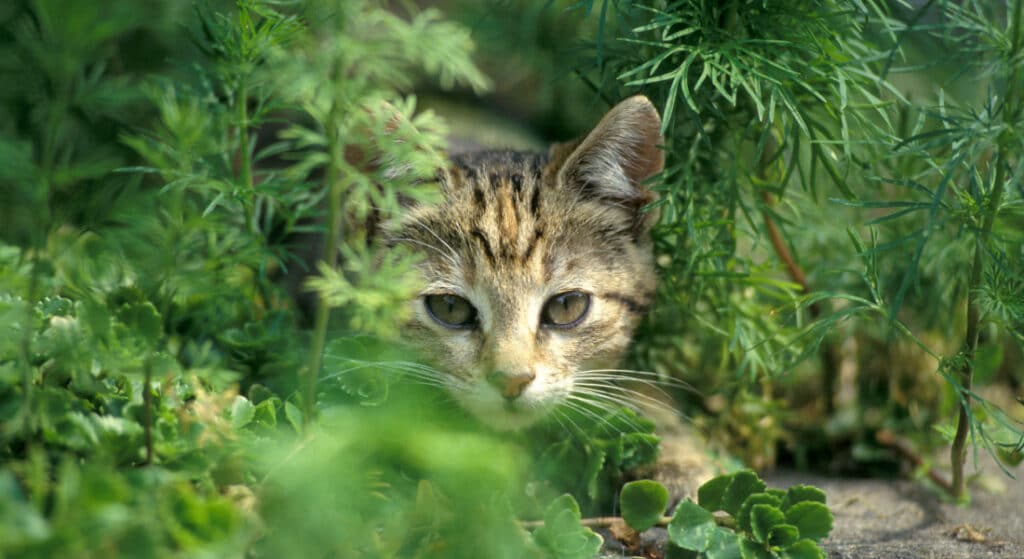
Why is My Kitten so Aggressive?
Some kittens display unusually aggressive behavior, which can be alarming for new pet owners. You may wonder, “Why is my kitten so aggressive?” This article explains why and what to do about it.
Kittens are a wonderful addition to any home. These furry bundles of energy usually provide unconditional love and great joy. But if yours starts to bite and scratch, you first need to know why it’s aggressive. Then you can address the underlying cause.
Patience, understanding, and gentle training techniques will help you transform your furry friend into a well-adjusted and loving companion.
The Cause of Aggression in Kittens
Kittens exhibit aggressive behavior for a variety of reasons. One common cause is fear or anxiety, especially if the kitten had a traumatic past or is still adjusting to a new environment.
Another factor could be redirected aggression, in which the kitten feels threatened or overwhelmed and takes out frustration on the nearest target. That might be anyone or anything within reach.
Owners who play too rough with their kittens using their hands or feet can inadvertently encourage aggressive behavior.
The behaviors we think are too aggressive may be instinctive kitten play, as your furry friend learns the skills it needs to hunt. Your kitten needs to learn that fingers aren’t toys.
In the wild, kittens engage in this sort of play with each other. They quickly learn not to hurt each other, sheathing their claws and holding back when they bite. Recognizing this, many cat shelters and charities now suggest people adopt a pair of kittens. If you can adopt two bonded kittens, they will quickly learn how to avoid hurting each other. And display less aggression towards you and your family.
A Safe and Comfortable Environment
The first step in addressing an aggressive kitten is to create a safe and comfortable environment for them. Ensure that the kitten has its own space with access to food, water, a litter box, and a cozy bed.
Reducing exposure to loud noises and unfamiliar faces during the initial weeks can help the kitten acclimate to its new surroundings without undue stress.
Trust is Earned
Patience is key when dealing with an aggressive kitten. Allow the kitten to come to you on its terms, avoiding forceful interactions.
Spend time near the kitten, talking softly and offering treats to build positive associations. Respect their boundaries and give them time to get used to your presence.
Positive Reinforcement Training
Positive reinforcement training can help redirect a kitten’s aggressive behavior. Use toys and playtime to engage the kitten in positive interactions.
If the kitten becomes too rough during play, immediately stop the game and withdraw attention.
This teaches the kitten that aggressive behavior leads to the end of fun, and encourages gentler play in the future.
Professional Advice
If the kitten’s aggression persists or escalates despite your efforts, it may be necessary to seek the advice of a veterinarian or a professional animal behaviorist. They can provide tailored guidance based on the kitten’s specific circumstances and personality.

Summing up, “Why is My Kitten so Aggressive?”
Dealing with an aggressive kitten requires understanding, patience, and a willingness to adapt your approach. It’s essential that you…
- Create a safe environment
- Build trust through patience
- Employ positive reinforcement training
These help your kitten overcome aggression and become a loving and well-mannered companion. Remember, each kitten is unique. But your time and effort will be rewarded with a happy, healthy, and well-adjusted feline friend.












